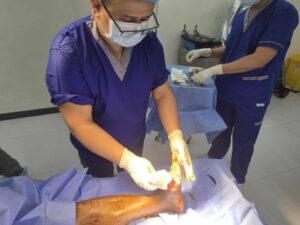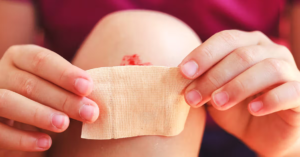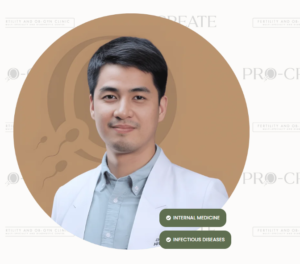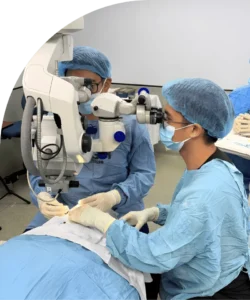Understanding the Role of a Diabetic Wound Doctor
Living with diabetes brings unique challenges, and one of the most overlooked is the risk of wounds that do not heal properly. A small scrape, blister, or ulcer that would normally close up in days for a non-diabetic individual can linger and worsen in someone with diabetes. This is where a diabetic wound doctor becomes essential. These specialists focus on treating wounds caused or complicated by diabetes, applying medical knowledge and advanced therapies that address the specific risks diabetic patients face. Their role is not only about treating the wound but also about understanding how blood sugar, circulation, and nerve function all influence healing. Many people with diabetes do not realize how dangerous untreated wounds can become until they face complications such as severe infections or amputations. By seeing a diabetic wound doctor early, patients improve their chances of recovery and avoid preventable health risks. Specialized care provides both treatment and education, ensuring patients know how to manage wounds and prevent new ones from forming.
Why Diabetic Wounds Require Specialized Attention
Unlike typical injuries, diabetic wounds heal slowly and often carry a much higher risk of complications. High blood sugar levels affect blood vessels, reducing the body’s ability to supply oxygen and nutrients to damaged tissues. This makes it harder for wounds to close naturally. Diabetic neuropathy, or nerve damage, further complicates matters since patients may not feel pain or discomfort even when a wound is forming. This delay in awareness means that ulcers, especially on the feet, can go untreated for weeks before being noticed. When untreated, bacteria can easily enter the wound, causing infections that may spread quickly. Severe infections sometimes require surgical intervention or lead to limb amputation. A diabetic wound doctor understands the complexities of diabetes and focuses on preventing these outcomes through early diagnosis, careful monitoring, and targeted therapies. Specialized attention is not optional for diabetic wounds—it is a necessity for preserving health, independence, and quality of life.
The Expertise of a Diabetic Wound Doctor
A diabetic wound doctor often has training in wound care medicine, podiatry, vascular surgery, or endocrinology. Their expertise goes beyond simply cleaning and dressing wounds; they look at the entire patient profile to determine why healing is delayed. Diagnostic tools such as circulation testing, imaging scans, and laboratory work are used to evaluate wound severity and infection risks. They often collaborate with other healthcare professionals to provide comprehensive care. For example, endocrinologists help manage blood sugar levels, vascular surgeons address circulation issues, and podiatrists specialize in diabetic foot care. This team approach ensures that the wound is not only treated but the root causes are also addressed. The expertise of a diabetic wound doctor includes knowing when advanced therapies are needed, such as regenerative medicine or hyperbaric oxygen therapy. Their skillset is highly specialized because diabetic wounds are among the most challenging conditions to manage in modern healthcare. Patients who work with these doctors benefit from both immediate treatment and long-term prevention strategies.
Advanced Treatments and Therapies for Diabetic Wounds
Modern diabetic wound care involves much more than applying a bandage. A diabetic wound doctor has access to advanced treatments that promote faster healing and lower the risk of infection. Debridement, the removal of dead or damaged tissue, is often the first step in helping wounds recover. Specialized dressings are then used to create the right environment for healing, whether through moisture control, antibacterial properties, or oxygen delivery. Hyperbaric oxygen therapy has proven especially beneficial for stubborn wounds. This treatment places the patient in a pressurized chamber to breathe pure oxygen, dramatically improving oxygen delivery to tissues that struggle to heal. Other cutting-edge approaches include the use of bioengineered skin substitutes and regenerative therapies that stimulate the body’s own healing mechanisms. Antibiotic therapies are tailored to fight infections without causing additional resistance issues. These advanced therapies are not typically available in general medical settings, which is why seeking out a diabetic wound doctor is critical. With the right treatments, even long-standing wounds can heal effectively.
Preventing Diabetic Wounds Through Early Intervention
While treatment options have advanced, prevention remains the most powerful tool for diabetic patients. A diabetic wound doctor emphasizes proactive care, including daily foot inspections, proper footwear, and maintaining good hygiene. Because many diabetic wounds start with something as small as a blister or callus, catching these early makes all the difference. Doctors also stress the importance of controlling blood sugar levels since stable glucose reduces the risk of infections and promotes healing. Patients are encouraged to exercise regularly to boost circulation and follow a nutritious diet to strengthen their immune system. Preventive care also includes regular appointments with a diabetic wound doctor, even before a serious wound develops. Early intervention means that small issues are treated promptly before they escalate into medical emergencies. Prevention is not just about avoiding wounds—it is about protecting overall health, mobility, and independence. Patients who work closely with their doctors are less likely to face severe complications, giving them greater confidence in managing their condition.
How to Find the Right Diabetic Wound Doctor
Selecting the right specialist requires careful consideration. Patients should look for a diabetic wound doctor with proven credentials in wound care medicine, podiatry, or vascular treatment. Experience in managing complex diabetic wounds is essential, as it indicates the doctor has handled a wide range of cases successfully. Modern facilities equipped with advanced technologies like hyperbaric oxygen chambers or regenerative therapy options provide additional reassurance. Patients should also evaluate the doctor’s communication style and willingness to answer questions clearly during initial visits. Asking about treatment strategies, expected recovery times, and preventive care recommendations ensures patients are fully informed. A strong relationship with a doctor who provides consistent follow-up and monitoring is vital for long-term wound management. Some patients benefit from seeking recommendations from diabetes clinics or support groups to find trusted specialists. Choosing the right doctor means finding not only medical expertise but also compassionate care that empowers patients to take control of their health.
Living Well with Diabetes and Wound Care Support
Managing diabetes and preventing wounds requires a holistic approach that extends beyond medical treatments. A diabetic wound doctor often provides guidance on lifestyle adjustments that support healing and reduce future risks. Nutrition plays a crucial role, as balanced meals help regulate blood sugar and supply the body with essential nutrients for tissue repair. Regular physical activity supports circulation, which is vital for wound healing. Patients are encouraged to wear properly fitted shoes and avoid walking barefoot, which reduces the risk of injuries that could develop into wounds. Mental health support is also an important part of care. Coping with chronic wounds can be stressful, and doctors may recommend counseling or support groups to help patients stay positive. Education is continuous, ensuring that patients understand how daily choices impact wound prevention and recovery. Living well with diabetes is possible with the right combination of medical care, lifestyle practices, and emotional support. By working closely with a diabetic wound doctor, patients can achieve both healing and long-term wellness.
Frequently Asked Questions (FAQ)
What kind of doctor treats diabetic wounds?
A diabetic wound doctor may be a podiatrist, vascular surgeon, endocrinologist, or a physician specializing in wound care. Their expertise ensures diabetic patients receive specialized treatment designed to promote healing and prevent complications.
How do I know if my wound is serious enough to see a specialist?
Any wound that does not improve within a few days, shows redness, swelling, or drainage, or appears on the feet should be evaluated by a diabetic wound doctor. Early intervention prevents more serious problems.
How long does it take for a diabetic wound to heal under proper care?
Healing time depends on factors such as wound size, infection level, circulation, and blood sugar control. Some wounds may heal in weeks with proper care, while others may take months, especially if complications are present.
Can a diabetic wound doctor help prevent future ulcers?
Yes, prevention is a key part of their work. They provide education, routine monitoring, and personalized care plans that reduce the likelihood of ulcers developing in the future.
Does insurance cover diabetic wound care treatments?
Most insurance plans cover diabetic wound care when it is medically necessary. Coverage may vary depending on the provider and type of treatment, so checking with the insurance company in advance is recommended.










